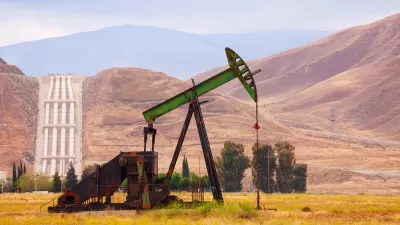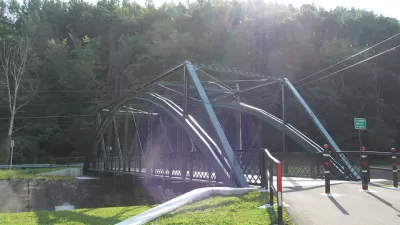Natural gas drilling was recently approved in North Carolina, but new operations are now on hold until the state Supreme Court resolves an issue about the process for appointing environmental review positions.

A North Carolina Superior Court decision earlier this month suspends drilling permits for hydraulic fracturing, or "fracking," until a case filed by Republican Governor Pat McCrory is resolved. The pending Supreme Court decision will determine whether appointments to the state Mining and Energy Commission are valid. The newly-formed Commission has a key role in the fracking permit process, which includes issuing sub-surface mineral rights to applicants before they can seek drilling permits from the North Carolina Department of Environment and Natural Resources.
A separate case filed by the Haw River Assembly is also pending, which involves similar legal questions as the Supreme Court case. At issue is whether the North Carolina state legislature overstepped its role in 2012 by establishing the Mining and Energy Commission, then appointing eight of the 13 members. The governor appoints the remaining five members, and the key legal question is whether sufficient separation of legislative and executive powers is occurring.
The Commission began writing rules and regulations for fracking in 2012, and has received over 220,000 public comments. The prospect of introducing a new form of mining has generated intense public debate, which mainly boils down to job creation and economic development versus environmental safety, and whether ground water supplies can protected from chemical injections needed to extract natural gas from shale deposits
Governor McCrory signed fracking into law in 2014, which would have allowed the permitting process to begin this year, though the extent and location of natural gas deposits has been difficult to pinpoint. So far no drilling permit applications have been submitted.
FULL STORY: Judge temporarily halts 'fracking' permits in NC

Alabama: Trump Terminates Settlements for Black Communities Harmed By Raw Sewage
Trump deemed the landmark civil rights agreement “illegal DEI and environmental justice policy.”

Study: Maui’s Plan to Convert Vacation Rentals to Long-Term Housing Could Cause Nearly $1 Billion Economic Loss
The plan would reduce visitor accommodation by 25% resulting in 1,900 jobs lost.

Why Should We Subsidize Public Transportation?
Many public transit agencies face financial stress due to rising costs, declining fare revenue, and declining subsidies. Transit advocates must provide a strong business case for increasing public transit funding.

Paris Bike Boom Leads to Steep Drop in Air Pollution
The French city’s air quality has improved dramatically in the past 20 years, coinciding with a growth in cycling.

Why Housing Costs More to Build in California Than in Texas
Hard costs like labor and materials combined with ‘soft’ costs such as permitting make building in the San Francisco Bay Area almost three times as costly as in Texas cities.

San Diego County Sees a Rise in Urban Coyotes
San Diego County experiences a rise in urban coyotes, as sightings become prevalent throughout its urban neighbourhoods and surrounding areas.
Urban Design for Planners 1: Software Tools
This six-course series explores essential urban design concepts using open source software and equips planners with the tools they need to participate fully in the urban design process.
Planning for Universal Design
Learn the tools for implementing Universal Design in planning regulations.
Smith Gee Studio
Alamo Area Metropolitan Planning Organization
City of Santa Clarita
Institute for Housing and Urban Development Studies (IHS)
City of Grandview
Harvard GSD Executive Education
Toledo-Lucas County Plan Commissions
Salt Lake City
NYU Wagner Graduate School of Public Service




























